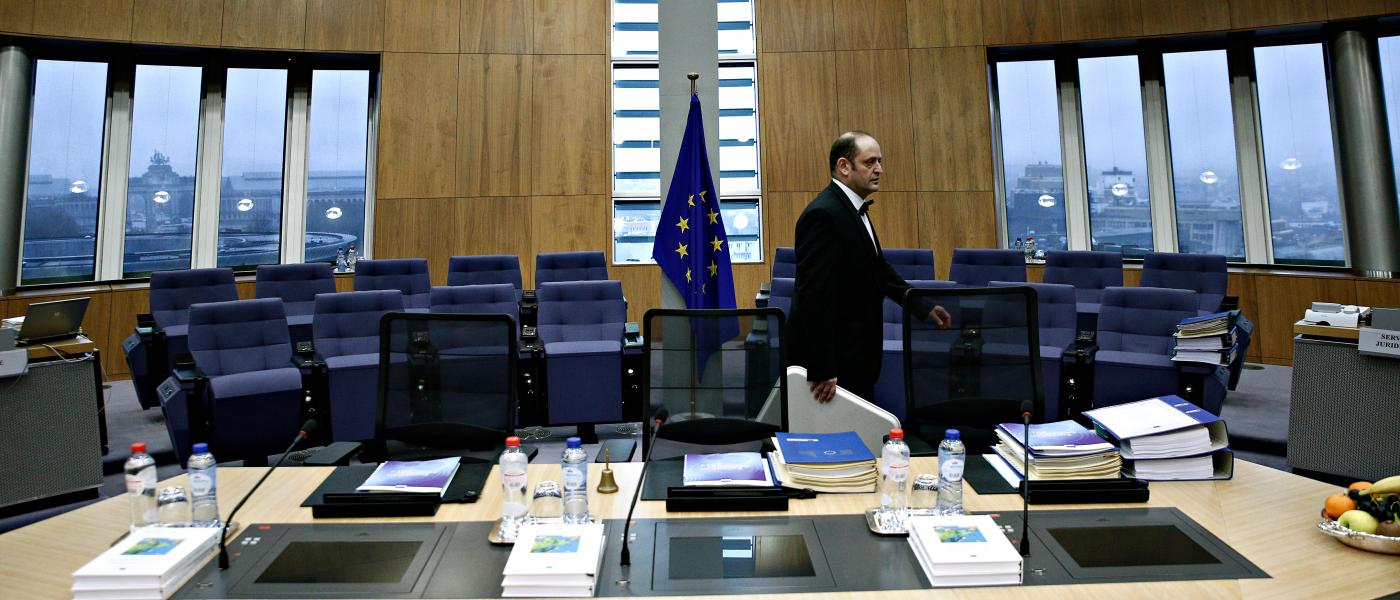Brussels is an attractive target for authoritarian actors seeking to subvert European and transatlantic politics. Host to the headquarters of the EU, NATO, and Eurocontrol, the agency responsible for air-traffic control system for all 41 of its European member states, Brussels also holds offices for many UN institutions, the African Union, and the World Bank. The EU and NATO in particular come with diplomatic delegations for each of their member states as well as for many of their partners. Statistics from 2016 showed that the city was home to 20 EU organizations and 42 intergovernmental organizations, as well as to 979 foreign journalists and 5,400 diplomats.
With so much potential intelligence to be collected in the city, it should perhaps not come as a surprise that Brussels is a hotbed of traditional espionage activity. According to a recent report by the European External Action Service, Brussels hosts “about 250 Chinese and 200 Russian spies” out of their country’s embassies or trade missions. Worryingly, even the head of division at Belgium’s General Intelligence and Security Services, the equivalent of CIA, was accused of passing on classified information to a Russian agent.
But Brussels is more than just a home for spy versus spy. It is also a city where authoritarian regimes seek more informal pathways of influence, using asymmetric tools as opposed to traditional methods of espionage. For instance, prominent Russian businessman Vladimir Yakunin, whose close relationship with Putin earned him a spot on the list of individuals sanctioned by the U.S. over their “involvement in the situation in Ukraine,” has demonstrated an interest in the “capital of Europe.” Just a few days ago, Yakunin was in Brussels giving a reception to announce his think tank’s new presence in the city, three months ahead of the European Parliament elections.
Yakunin’s think-tank, the Dialogue of Civilizations (DOC), was founded in Berlin in 2016 as an offspring of a yearly conference that hosted pro-Russian dignitaries to promote, for example, the “rationality” of Moscow’s intervention in Syria or to explain that the Ukrainian Maidan revolution was “imported.” In its current incarnation, DOC aims to challenge the dominance of Western think-tanks by giving room to views such as “Europe is the crisis” or “sanctions against Russia [are] a “lose-lose strategy”.” Under the guise of impartial research, DOC is an unofficial channel for Moscow’s official attempts to influence and subvert democratic society in Europe.
Yakunin was also slated to speak at an EU-funded conference the day after DOC’s Brussels launch but organizers dropped his name from the program after his participation was outed in the press. And he will probably be returning to Brussels in the not too distant future seeing as, since 2018, he holds a national visa from neighboring Germany allowing him to live and work in the country.
Also in the past few days, it was reported that the daughter of Kremlin spokesperson Dmitry Peskov is currently working for a French member of the European Parliament – Aymeric Chauprade, formerly foreign policy adviser to Marine Le Pen and current vice-chair of the Europe of Freedom and Direct Democracy group, a group headed by Brexiteer Nigel Farage. In 2014, Chauprade openly supported Russia’s annexation of Crimea and participated in an election observation trip there. The trip to Crimea was paid for by a “Brussels-based NGO called Eurasia.”
Chauprade is a member of both the European Parliament’s foreign affairs committee and the subcommittee on security and defense, as well as of the delegation of the EU-Russia parliamentary committee. While Chauprade declared to the press that Peskov’s daughter’s work for him created “zero issue from the point of view of security, defense, and conflict of interest,” reactions from some of his colleagues were less dismissive. Lithuanian MEP Petras Austrevicius called the whole affair a “very big shame on the face of the European Parliament” while French MEP Christine Revault d’Allonnes-Bonnefoy told the press that she found the revelation “extremely shocking. The daughter of the Kremlin’s spokesman is not just any person.”
These events do not constitute isolated incidents. They are part of a broader pattern of multidimensional interference pursued by several authoritarian actors in the transatlantic space. Gaining insider knowledge and deepening networks in the European Parliament– especially with parliamentary elections forthcoming in May – and promoting the Kremlin’s reactionary narratives in Brussels under the guise of neutral scholarship all contribute to the soft power and influence of an authoritarian regime in European decision-making circles. European officials, researchers, and civil society organizations should generate greater understanding of the actors in Russia who are providing the financial and political support for these channels of influence in the heart of Europe.
The views expressed in GMF publications and commentary are the views of the author alone.





